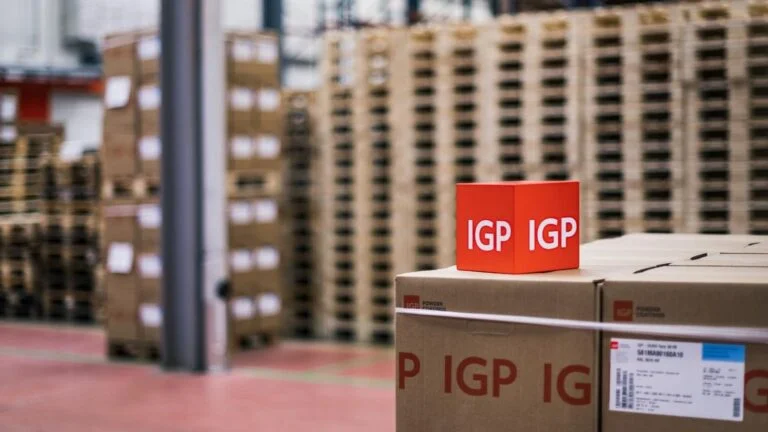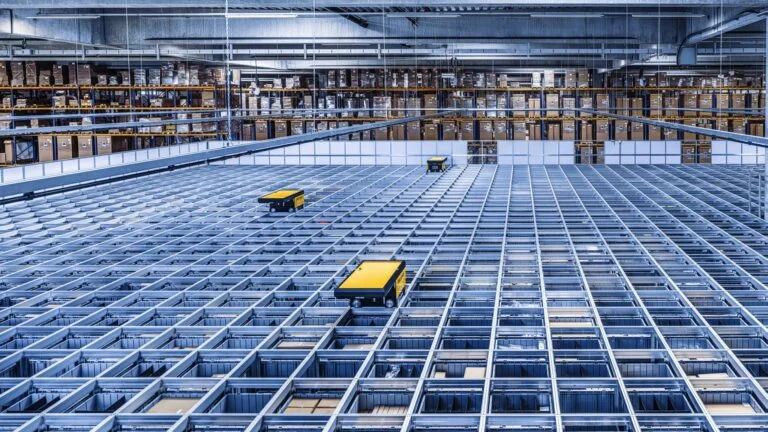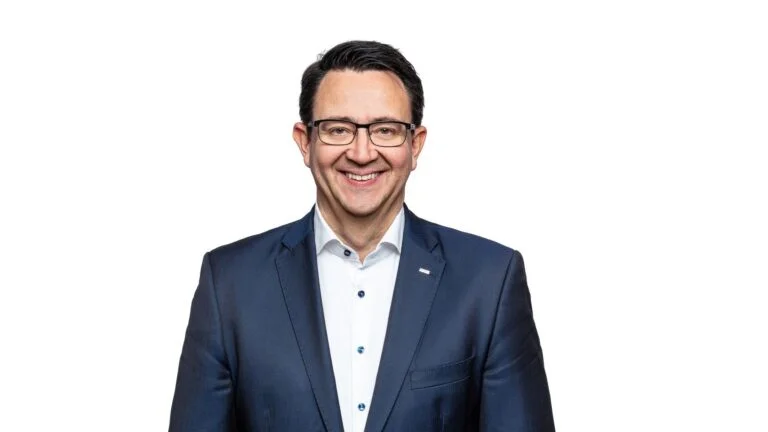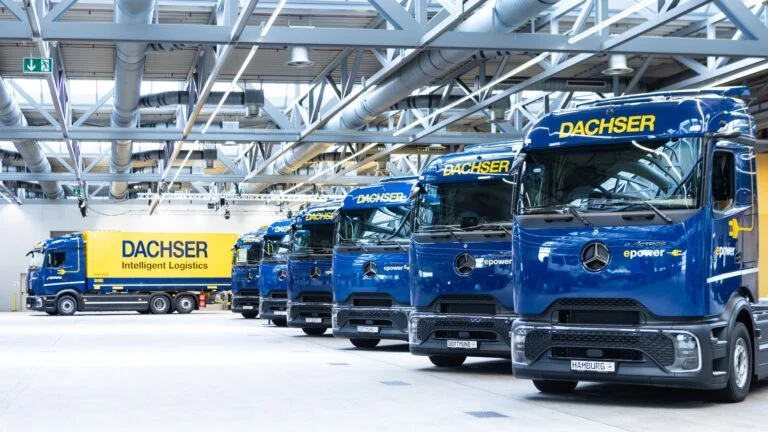Being connected
By Bernhard Simon I Image credit: Katrin Harms I 9 minutes read
11/07/2025
For DACHSER, business ethics forms the strategic framework that places its entrepreneurial activity in a sociopolitical context. And this is precisely what the close cooperation and mutual trust between DACHSER and the children’s aid organization Terre des Hommes stand for—and have done for 20 years. Bernhard Simon, Chairman of DACHSER’s Supervisory Board, takes a look back over those two decades and at where the partners are today.
Quick Read
Business ethics is one of the roots from which we at DACHSER have been growing for over 90 years. It has always been the guiding principle for our actions and the starting point for how we understand our entrepreneurial mission. We know that entrepreneurial activity takes place in a sociopolitical context, and so one of the guiding principles of our work is to be a corporate citizen – a player in the economic and social environment that is oriented toward the common good and plays a positive role.
Against this backdrop, DACHSER’s now 20-year collaboration with the children’s rights organization Terre des Hommes has developed into a cornerstone of how we understand business ethics–a collaboration that has since attracted a great deal of public attention from far and wide.
It all started following the 2005 tsunami disaster in the Indian Ocean, when DACHSER and Terre des Hommes joined forces to implement an independent concept that helped people to help themselves. The partnership initially launched various projects in South Asia, expanding later to Southern Africa, Latin America, and most recently Ukraine. All its efforts focus on educational opportunities and improving the living conditions of children and young people–particularly those in socially and economically disadvantaged communities.
DACHSER’s 20-year collaboration with the children’s rights organization Terre des Hommes has developed into a cornerstone of how we understand business ethics.
Offering guidance for peaceful coexistence
I’m often asked, by people both in and outside the company, why we as a logistics provider support projects in India, Nepal, South Africa, Zambia, Mozambique, Namibia, Brazil, Argentina, Peru, Bolivia, and Ukraine. These projects address children’s and women’s rights, education and vocational training, self-employment and entrepreneurship, as well as environmental and climate action. They also focus on overcoming trauma in conflict areas and offering guidance on peaceful coexistence. Where is the unifying idea, where is it embedded in the company’s strategy? And why are these projects so far away–aren’t there enough problems in Germany and Europe for DACHSER to focus its activities on? My answer is simple: DACHSER is an established player on the global market. We have our own locations in 43 countries on five continents, and our networking expertise is one of the fundamental elements of our business model. For these reasons, the world is also the stage on which our corporate citizenship plays out. We think globally–both for our business and in our social commitment. In doing so, we also make it clear how wide the differences are in equal opportunities between the Global South and North.
Read more about the cooperation between Terre des Hommes and DACHSER.

Responsibility doesn’t end at corporate or national boundaries
Especially in times like these, marked as they are by war, crisis, and uncertainty in many places, we need powerful initiatives for local development. In the age of globalization, we all live in one world. Movements of refugees and an upswell in human suffering could arise anytime and in places where they are least expected. Our responsibility doesn’t end at corporate or national boundaries. In addition, not everyone benefits from globalization to the extent that we do in industrialized and developed economies. Children in the Global South are often particularly exposed to the effects of globalization; for example, rural flight, abuse, child trafficking, environmental destruction, and the consequences of climate change. And so it falls to us to secure a proper livelihood for more and more people, and to ensure that younger people in particular have the opportunity to unlock their potential within the community. That’s why the approach of our projects with Terre des Hommes–to create environments in which children and young people can develop–is of such fundamental importance.
Children in the Global South are often particularly exposed to the effects of globalization.
A step further: Corporate Citizen+
For us, corporate citizenship thus means acting responsibly worldwide, and reflecting on the question: How do we treat our employees, partners, and customers at our locations? At the same time, our activities with Terre des Hommes take us a step further, which we describe as Corporate Citizen+. Specifically, it means we are committed to improving the living conditions of many young people in poorer regions of the world. It is part of our globally oriented worldview to set an example regarding sustainable development, including beyond our company. After all, the only way we can operate successfully over the long term is if the world is still intact tomorrow. At DACHSER, then, entrepreneurial activity and a commitment to development policy are two sides of the same coin.
Taking fate into one’s own hands
By working with Terre des Hommes, we’re also acting in the best spirit and on behalf of our family-owned company. DACHSER emerged from the global economic crisis of the 1930s, when living conditions in Germany were difficult. The company built a future for itself through personal drive and entrepreneurship. We’ve learned that only by taking our fate into our own hands can we hope to see something better grow. We want to convey this certainty to other people and see them share this aspiration, which is why we’re helping to lay the right foundations in our various projects.
For DACHSER, social commitment isn’t a question of forcing a situation or setting out to polarize, but rather is always based on consensus. In the social context, our company both takes an active role in shaping development and also serves as a sounding board. There is always an interaction, a cultural exchange, in which DACHSER does not adopt a “lecturing” posture. In the Global South, we don’t want to come across as though we’re trying to save the world, nor do we want to make promises that we can’t keep.

Embedded in an integrated sustainability strategy
Our activities with Terre des Hommes aren’t an isolated undertaking within the company; instead, they are embedded in a well-thought-out ESG strategy that encompasses a broad spectrum of activities. While the development projects above contribute to the “S,” or “social,” part of ESG, we’ve also done a lot for the “E,” or “ecological,” part in recent years. Based on the binding goals of the 2015 UN Climate Change Conference in Paris, DACHSER has made a commitment to protecting the environment and the climate. In brief: we’ve set an example in sustainability issues as part of our DACHSER Climate Protection strategy and have learned to use resources intelligently and efficiently. We’re optimizing our processes accordingly, researching alternative vehicle powertrain systems, and relying on new carbon-saving technologies. In sum, when it comes to sustainability, we see ourselves as an impulse generator in logistics. This is in line with our commitment as a family-owned company to long-term corporate governance (the “G” of ESG), which focuses on our responsibility toward employees and society (in keeping with the “S”). Our decarbonization efforts are especially important for people in emerging and developing countries, who are exposed to the negative effects of global warming. It is here that the meaningful connection between environmental and climate action (“E”) and social commitment (“S”), as we do with Terre des Hommes, becomes apparent.
Our activities with Terre des Hommes aren’t an isolated undertaking within the company; instead, they are embedded in a well-thought-out ESG strategy that encompasses a broad spectrum of activities.
Many building blocks of a larger puzzle
That’s why the latest building block in our ESG strategy is our collaboration with myclimate. This nonprofit organization works with private individuals and partners from business to help shape the future through consulting and education offerings as well as its own climate action projects. In 2024, DACHSER, Terre des Hommes, and myclimate entered into a long-term partnership to launch new climate action projects worldwide. The collaboration comprises two complementary fields of action: climate action projects with myclimate, which are certified according to recognized standards in South America, Africa, Asia, and Europe, and projects with Terre des Hommes, which support children and young people worldwide with an additional focus on climate action.
Since 2022, our ESG strategy has also included the “Psychosocial Support for Families in Ukraine” project. This initiative provides children, young people, and their caregivers with assistance in overcoming trauma and building stress resilience, so that the future generation continues to have the ability to create peaceful social structures of cohesion.
Conceptually, all our ESG activities fit together seamlessly like a big jigsaw puzzle. They complete the picture we want to paint as we celebrate 20 years of partnership with Terre des Hommes.






